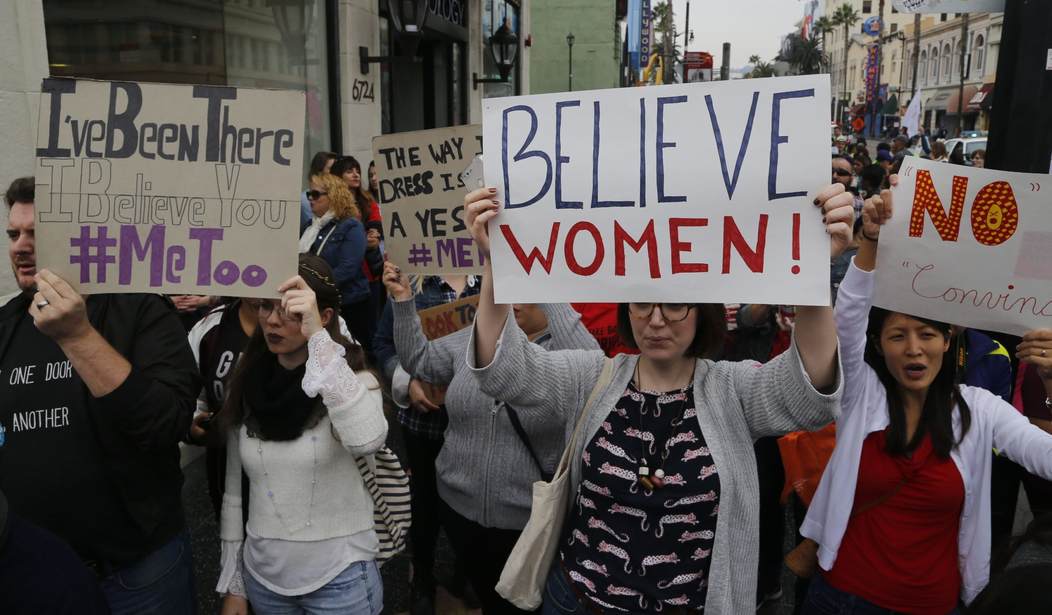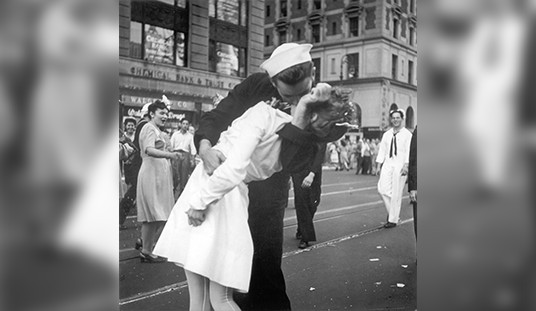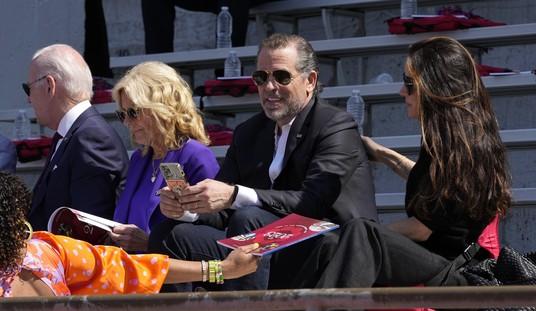Long before the #MeToo movement, I wrote about my own sexual assault. I described it in a post about gun control on college campuses, though I didn’t put my name on it at the time. Later, I referenced it when I wrote another post about sexual assault and harassment during the 2016 presidential election.
Not many women would want to write down the details of their sexual assault and share it. I did, because after decades of processing it, I am now able to face it, describe it, and discuss it. For many years, I didn’t. Twenty years ago, I wouldn’t have been able to have this conversation. Now, I can tell my story. It’s my own kind of therapy—a natural expression as a writer.
We already had sex earlier that day, but he wanted more. I didn’t want to do it again. The evening had been a disaster. Out drinking with friends—his friends. Bar hopping. Dancing. Tequila shots. He was in one of his moods, and the drugs didn’t help. It all started with some guy flirting with me. He blamed me. He always blamed me. Now he wanted to mark his territory. I was his, and he had to prove it.
“Take off your clothes,” he said, sitting on the edge of the bed, sweat glinting on his forehead, his pupils dilated. He didn’t even look like himself.
I shook my head. “I’m tired, and I really don’t feel like it.”
“Come over here,” he said. “I’ll make you feel like it.”
I turned away and shoved some clothes into a drawer. “You should just go back to your dorm. I don’t want to fight.”
I wasn’t prepared for what came next. He lunged across the room and grabbed me, pulling me onto the bed and crawling on top of me.
“Get off!” I said. “I told you I didn’t want to.”
“But I do,” he breathed in my ear, ripping off my underwear. His elbow dug into my breast, and I cried out in pain. He didn’t care.
I struggled, kicking my legs. He held me down. I couldn’t believe how weak I was compared to him. Never had I felt so helpless, and it terrified me. He was too strong, too heavy, too in control. I was so angry—at myself for being weak, at him for being cruel.
“Get off me!” I cried, the tears streaming from the corners of my eyes into my hair. I remembered how it felt cool against my skin. Strange that I would remember such a tiny detail.
“You’re hurting me!” I sobbed. “Please stop!”
“I know you want it,” he said, and he pressed harder, holding my wrists together with one hand while spreading my legs with the other, his nails digging into my thigh.
“I said stop!” I yelled, hoping someone in the hall would hear. He clamped his hand over my mouth, leaving me to beat him with my fists. It didn’t faze him.
“Feel that,” he whispered. “He could never make you feel like this.”
I couldn’t speak. I couldn’t move. All I felt was him, as if I didn’t even exist. Over and over again. I thought it would never end.
When it did, he passed out, snoring as if nothing had happened. I slipped out from under him, pulling on my clothes, shaking, forcing my legs to move, rage ripping through me. That’s what I would always remember so clearly—the rage I felt. He had betrayed me, and there was nothing I could do about it. Nothing.
In that moment, as I looked at him lying on the bed, I wanted him to pay for what he’d done. I glanced over at the phone. Should I call the police? No, I didn’t want to get them involved. This was personal.
He groaned and turned over, still snoring. I ran to the bathroom and shut the door. I wiped myself off and slumped to the floor, rubbing the tears from my eyes. Anger and shame pounded in my temples. I imagined, for a moment, hurting him like he had hurt me. I pictured him bleeding, his eyes open, staring at my face—the last image he would ever see as he slipped from this world. I hated him for making me feel this way, for thinking such hateful thoughts—becoming, in a way, like him.
While it’s therapeutic for me to write this down, I don’t like sharing these private aspects of my life so publicly. Yet, I’ve done so, because sexual assault is such a prevalent issue today. I believe, as a woman who has suffered in this way and who has had years to process it, I have something to add to the conversation—which is why people are often confused that I spend much of my effort, not lamenting my victimhood and standing by other women who have been sexually assaulted or harassed, but defending men—not individual men, but men as a group.
I received this reaction recently when I wrote a post at The Federalist titled, “Can We Be Honest About Women?” In that post, I expressed my concerns that the #MeToo movement has turned into a witch hunt against men as accusations are immediately taken as fact and the definitions of sexual assault and harassment have broaden to include even benign, natural interactions between men and women.
I also sought to bring some balance to the debate by showing that men are not the only ones who can use their sexuality to control and manipulate. Women do it as well, using their femininity, sexuality, and beauty as a source of power. In addition to this established generalization about the sexes, both men and women interact with one another with a sexual tension that is harmless and good. We need to respect this dance between the masculine and feminine and discern the difference between abuse and acceptable sexual expression.
I have received a great deal of criticism from women (and men), not only insisting that this view of the sexes is dated, but accusing me of encouraging men to continue to be sexual abusers by absolving them of their crimes in the name of natural sexual interplay (something that I don’t do at all). How could I, they ask, not see the dangers men pose and do everything I can to rein in this “toxic masculinity”? Why do I so often come to the defense of men instead of joining the chorus of condemnation?
First of all, I want to make it clear that my defense of men is not an attack on women. Any woman who has been raped, sexually assaulted, or harassed needs our support, love, and compassion. My heart goes out to women who have been trapped in situations where they have been powerless and have experienced betrayal and fear when they should have been respected and protected. I know it well.
However, as I said before, I see a trend in today’s society that is not only about cleansing culture of sexual abuse, but also of stigmatizing masculinity because it is seen as brutal, toxic, and predatorial. I see men, whose guilt is assumed, left to hopelessly prove their innocence. I see divisions deepening between men and women, breaking down trust in our society, which is dangerous to the health and welfare of a democracy.
I see fear taking hold of our nation as trust and love are shattered in the name of social justice. I see the flames of vengeance being lit, catching fire and threatening to consume our families, our associations, our workplaces, and our country.
While I want individual men to be held to account for their heinous crimes and encourage victims to come forward and do just that, I reject indicting all men as a potential threat that women must fear. With all of our consent forms, expanding sexual harassment laws, rules about no hugging in schools and even among family members, suspicion, and doubt seeping into the cracks of every relationship, we’re not building a stronger society; we’re demolishing it.
We’re eating ourselves alive, not because women are reporting sexual abuse—as they should, and it takes a great deal of strength to do so—but because political and cultural pariahs are using an important issue that needs to be addressed and twisting it to delegitimize men as a group, disrupt personal relationships, and ultimately strengthen the state.
This realization drives me to oppose the witch hunt, to try to bring balance into our discussions about male and female sexuality, to support women who have truly suffered abuse, and to defend men in general (or in particular instances) who are being labeled as innate abusers and a threat to women everywhere.
These concerns compel me to speak, but there’s something else that drives me—it’s personal, born of a lifetime of struggle to overcome trauma, to be free of fear, and to trust my fellow man. It might sound odd, but I’m an advocate for men (as a group) in these inflammatory times because I was sexually assaulted and because I have experienced the brutality of abuse in the most intimate of relationships.
I’ve seen men at their worst. I suffered abuse (not sexual) by my father, a man with a good heart but who suffered from PTSD after returning from Vietnam and who naturally had problems with emotional regulation. I’ve seen male strength corrupted and unleashed on the innocent.
I was a creative, highly imaginative child who could never express herself as she needed to, because of fear that a hand would suddenly strike her across the face and she wouldn’t even know why. People became a source of fear for me, and I watched them behind a veil of quiet hostility. Abuse changed me, disconnecting me from true aspects of myself—the trusting child, the fearless artist, the girl full of wonder who wanted to hold the world with her arms wide open. She was all but forgotten, buried deep within, hidden behind layers of masks.
Later events—rape, sexual assault, harassment, and even spiritual abuse—only compounded the distrust I already had, not only of men, but of women as well. I didn’t trust them, because they were never willing to protect me, to help me. I considered them weak. I was one of them—fragile, and I hated it.
I was alone, vulnerable, in a world of violence and abuse. Fear infected me. I covered it up with material accomplishments and toughness, distracting myself and others. “I was a strong woman!” That’s what I projected. That’s what I imagined. Inside, though, I was a terrified little girl.
Over the years, I began to realize that I couldn’t live like that. It was self-destructive as I sabotaged nearly every relationship. “Screw them before they screw you,” I thought. “Eventually, they’ll turn on you. They’ll hurt you. Trust no one. Love no one.” When I was in intimate relationships with a man, I felt a sense of dread from the very first introduction. When he kissed me, I could never really rest in him. He’d hurt me in the end. I knew it.
I hated that vulnerability. In response, sometimes I would fight. Other times I would run. Even now, after many years of wrestling with my inner demons, I still feel that fear when I’m in a vulnerable position, when I’m around people I don’t know very well, when men could easily abuse me and I’d be powerless to do anything about it.
If I gave myself over to the fear, I’d be lost. I’d never be able to love, trust, or live my life freely. I refused to let that happen. I couldn’t look at every man I met and see a predator. I didn’t want to imagine monsters in the shadows.
Too many men had loved me, proving all weren’t bad. Even those who hurt me couldn’t be defined by their momentary cruelty. My father is more than the man who abused me as a child. He was a fallen man, broken, but still a wonder made in God’s image. I couldn’t withhold forgiveness from him, because to do so would only embitter me. Showing grace freed me from fear.
When I think of all the men in my life through the years, I could point out their failings and their weaknesses, even my ex-husband. But none of them are monsters, and they each have goodness in their hearts and love to share. I can’t rob them of that because of what a few men did to me. I can’t project the failings of others onto those have done nothing to deserve it.
Believe me, I’m tempted, but I have to force myself to take deep, steady breaths and see the man in front of me as he is, not as I imagine him to be or as society tells me he is because of the crimes of others. I refuse to let minor offenses or natural sexual interactions be interpreted as violent abuses. I know the difference. I’ve seen what real assault looks like, and I won’t let fear fuse them all together as one.
I have sons, a husband, a brother, male friends, and male co-workers. I admire and respect each of them. Are they perfect? No. But they’re not predators, and I refuse to think of them that way. They deserve my trust until they betray it. They deserve my respect as human beings who are as fallen as I am. They deserve my gratitude for all they do for me.
This is what I have to keep telling myself. This is what I have to meditate on and think about, letting reason control my emotions. Every day, I struggle against the fear that is so ingrained in me from trauma. I have moments when the distrust takes over. I lash out, I run, I attack. But I soon see what I’ve done, and I try to remind myself of what is real and what is my imagination born of fear.
When I listen to all the warnings about toxic masculinity, when I hear women equate a man’s attraction to a woman’s sexuality as an open doorway to sexual assault, I can’t allow myself to be swept along for the ride. I’ve seen how fear and distrust blacken my soul and isolate me from others. I don’t want that for myself, and I don’t want it for our society. Cultivating trust after abuse takes work; it’s a leap of faith, but it’s one we all must take. If we don’t, we’ll dehumanize one another, as we live by fear instead of by grace and love.









Join the conversation as a VIP Member